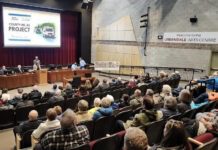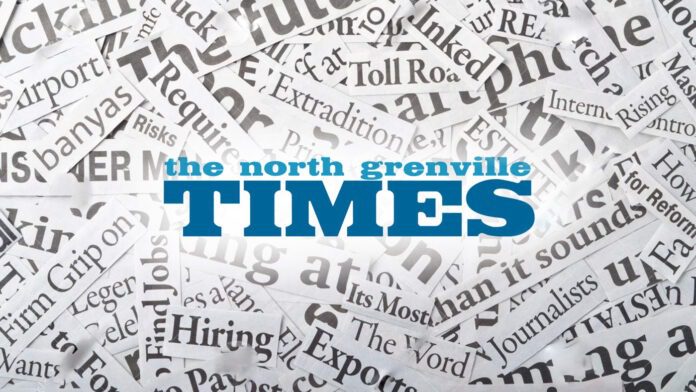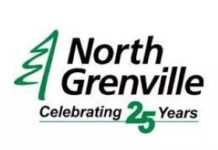This may not be common knowledge, but municipalities are in their annual budget deliberations. Every year, municipal staff and councils have to find ways of using the tax revenues we so generously provide to them, and the job is not getting any easier. Transfer payments from the province have been gradually cut back, until there is nothing left to depend on anymore. The mayors of both North Grenville and Merrickville-Wolford are on record as stating that the Province of Ontario is bankrupt, and I don’t think anyone will disagree with that. Billions of dollars have been thrown away on cancelling power plants, among other missteps, and carbon taxes are being looked to as a new source of badly-needed revenues.
The Province has also failed to take steps to protect municipalities from potential insurance claims under the Joint and Several Liability provisions. The cost to insure the Municipal Centre is $57,760 for 2017. Nor has it done much to deal with the rising crisis for municipalities arising from huge policing costs. The cost of the OPP contract for 2017 is estimated at $2.4 million. North Grenville may feel the effects of this policing expense, but not nearly as sharply as other and smaller jurisdictions, where policing costs are taking up more than half of their annual budgets. Policing costs for Ontario municipalities have been called “obscenely high and unsustainable”, and are a regular item on the agenda at Association of Ontario Municipalities and Rural Ontario Municipalities Association conferences.
The president of ROMA, Lynn Dollin, spoke on the issue at last week’s ROMA gathering in Toronto: “Ontarians pay the highest policing costs in the country. Per capita, in 2014-2015, we spent at least $20 more than Albertans, $38 more than Quebecers, and $58 more than British Columbians”. Mayor David Nash of Merrickville-Wolford says that: “Policing is not sustainable at the current level. It costs $150,000 to put an officer on the road”. It is hoped that presentations made at ROMA last week by the new Warden of the United Counties may help bring about changes. Robin Jones was a career officer with over 30 years experience as a Detachment Commander with the OPP.
Ron Holman, Chair of the ROMA conference and mayor of Rideau Lakes Township, names energy and policing as “top the list of pressing priorities” for rural municipalities. Certainly, energy costs for everyone have gone up to a ridiculous extent over the past decade, and the new Carbon tax implemented by Ontario at the start of this year, will add a minimum of 1% to the North Grenville budget. Something else for staff and Council to take into account as they juggle the figures for 2017.
To add to the difficulty of the job, there is only so much of the budget that municipalities have complete control over. According to Merrickville-Wolford CAO, John Regan, about two-thirds of the budget there is fixed and Council have no latitude. Once again, OPP costs are out of their control, as are Rideau Valley Conservation Authority costs, school boards and county levies. This doesn’t leave a lot left over for Council to allocate for regular spending needs.
Candidates during the last municipal election two years ago reported that one of the most common questions residents had for them on the doorstep was: “Are you going to raise my taxes?” That is, of course, the usual issue for every level of government. But, the question has to be put in return: “Do you want your road ploughed in winter? Do you want your garbage trucked away? Do you want to use the library or the swimming pool? They are some of the places your tax dollars go.”
All of this only makes it more important that municipalities spend what tax money they have wisely and carefully. In this year’s budget there is sum of $55,000 set aside to buy the by-law officer a new vehicle out of tax revenues. An amount of $178,000 is being spent on training in Leadership in Asset Management, as well as $23,500 on a study to find out future population growth. $30,000 will be set aside for a Service Review “to identify potential service delivery improvements”. It may be asked why this extra money is being spent on studies that municipal staff might be expected to do as part of their working day. After all, last year’s Sunshine List showed that six staff members each earned more than $100,000 a year. Surely they are skilled enough to do those studies?
Around $45,000 will be spent on reviewing the Development Charges being levied on development in the infamous North West Quadrant. This development area has been studied before, but things have changed there since approval was first given that a new evaluation is needed. This is the municipality paying for some questionable supervision of that area over the past five years, when the original plans were altered, wetlands drained, and housing density increased.
There are many other items in the draft budget which was released January 23. The first public meeting to allow questions from residents on the 131-page draft took place on January 25. Public consultations are now over, the final meeting of three having been cancelled by the municipality. The final budget document will be approved by Council on March 13.









